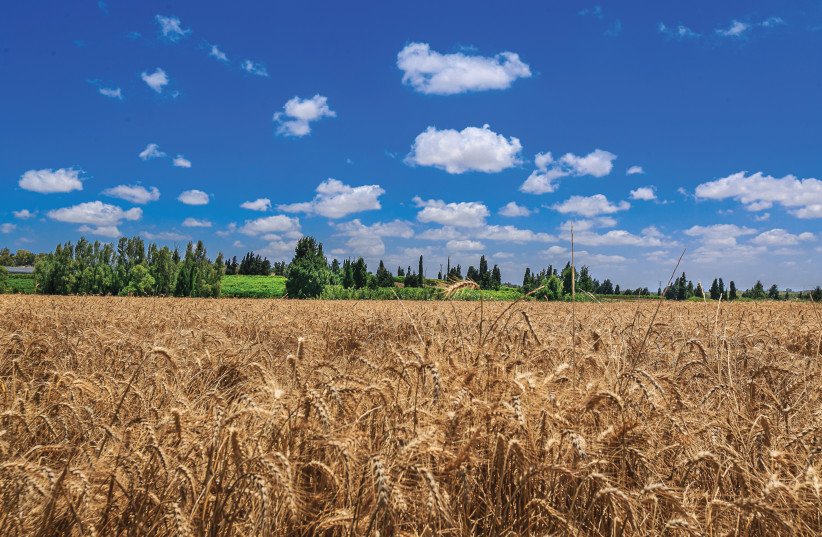What is gluten anyway? Who must avoid it? And is a gluten-free diet really an effective way to lose and maintain weight? In episode 7 of "Nutrition on the Episode," Gil Avidor-Aloni hosts nutritionist Keren Ann Gaiman to understand why it has such a bad reputation and whether you really need to give up bread and pizza which contain gluten or go for gluten-free versions.
Gluten is a protein found in grains like wheat, barley, rye and spelt. The origin of the name is taken from the word glue because it gives pastries and doughs a sticky texture. And accordingly, the Hebrew term is Debkan from the word devak, glue. Numerous conditions require avoiding gluten: celiac disease, gluten sensitivity and wheat allergy.
Celiac disease: This autoimmune intestinal disease is found in 1% of the population. When celiacs consume gluten, their immune system sees it as a foreign body and attacks the cells of the small intestine. Symptoms of celiac disease include gastrointestinal disorders such as diarrhea and abdominal pain, fatigue, problems in digesting food which leads to lack of absorption of vitamins and minerals, etc. Celiac disease can be diagnosed through blood tests or a biopsy of the bowel.
Gluten sensitivity: Symptoms of gluten sensitivity are very similar to those of celiac disease, but unlike an autoimmune disorder gluten sensitivity can’t be detected in tests, but only by the exclusion of other conditions and an elimination diet in which gluten-containing foods are gradually removed from the menu.
Wheat allergy: This allergic reaction to wheat can be diagnosed through allergy/blood tests. Unlike celiac disease or gluten sensitivity, in cases of allergy, the immune response will appear immediately after eating wheat and can manifest as diarrhea, nausea, rash, swelling of the throat, and in extreme cases, it can even lead to real-life danger.

In recent years, following a gluten-free diet has gained much popularity even among people who don’t suffer from any of these conditions, possibly due to the increase in the incidence of disorders requiring avoidance of the protein. But if you don't suffer from celiac disease, sensitivity or allergies, you really have no reason to remove gluten from your diet. On the contrary, many times gluten-free products are ultra-processed and made up of sugars and starches, so they may be less nutritious and healthy than whole grain products with gluten.
And what about weight loss? A gluten-free diet hasn’t been found to be more effective for weight loss than other diets. The reason that weight loss is often seen in the transition to a gluten-free diet isn’t because of the removal of gluten itself, but because one stops eating more calorie-dense foods that contain it like pasta and snacks.
